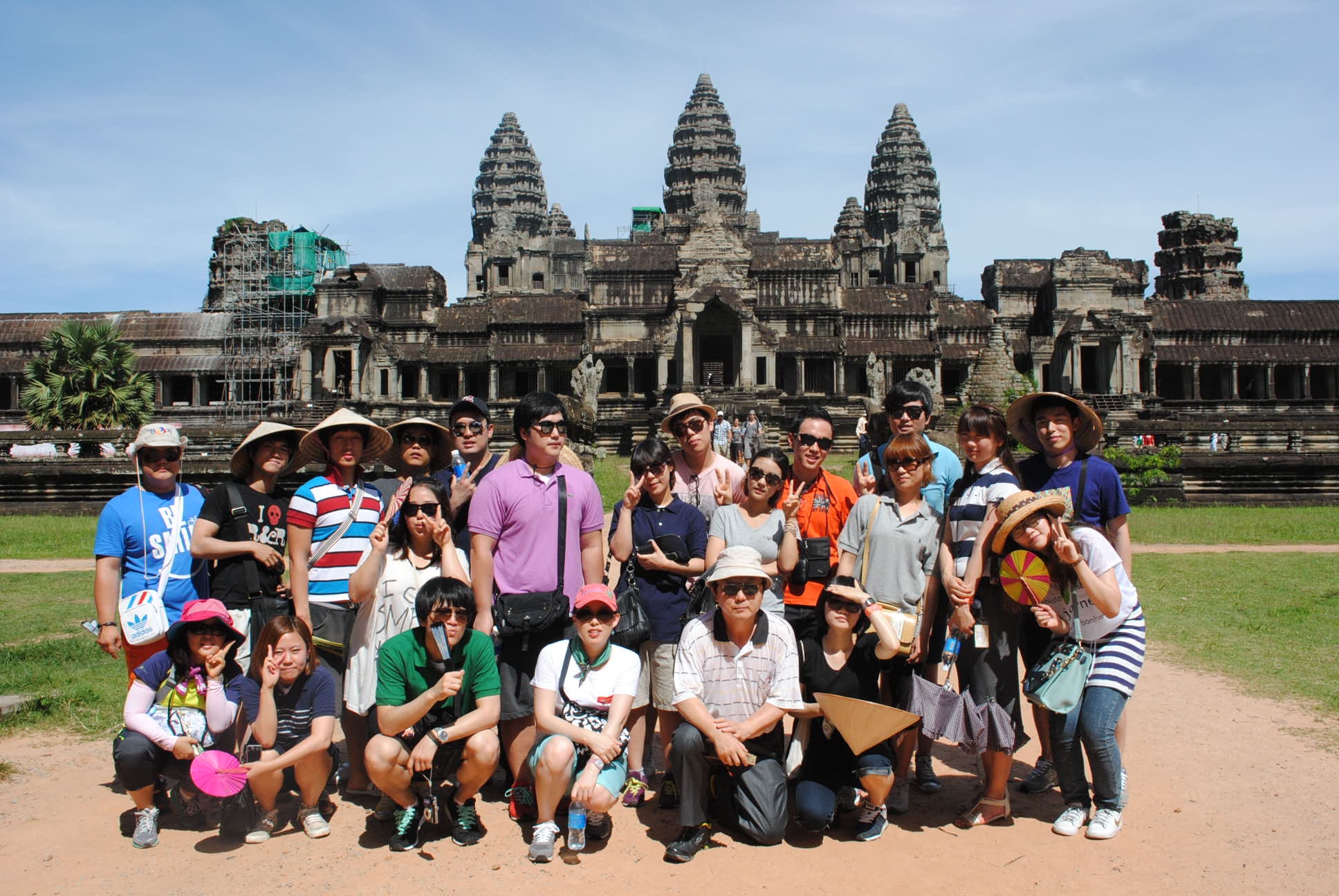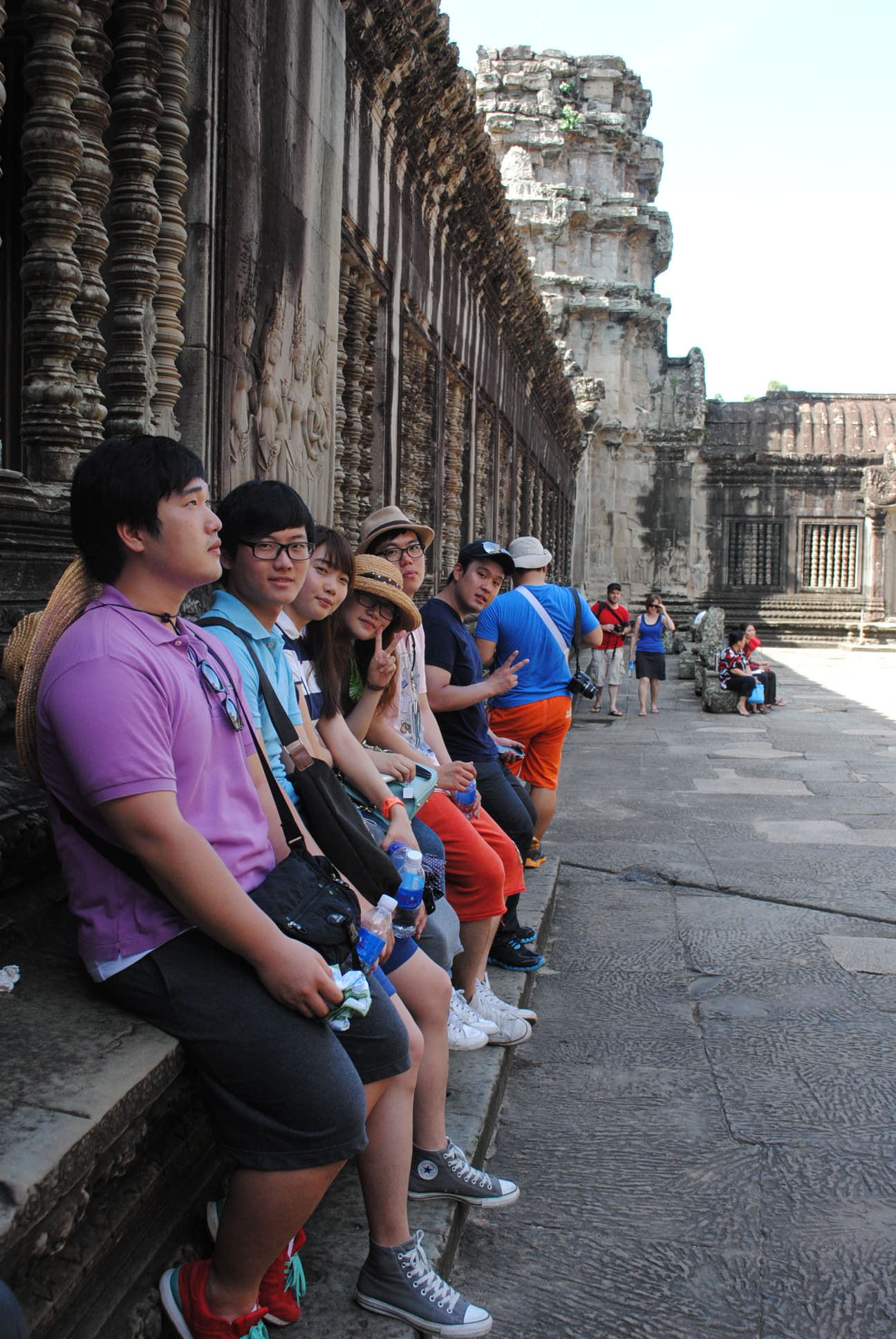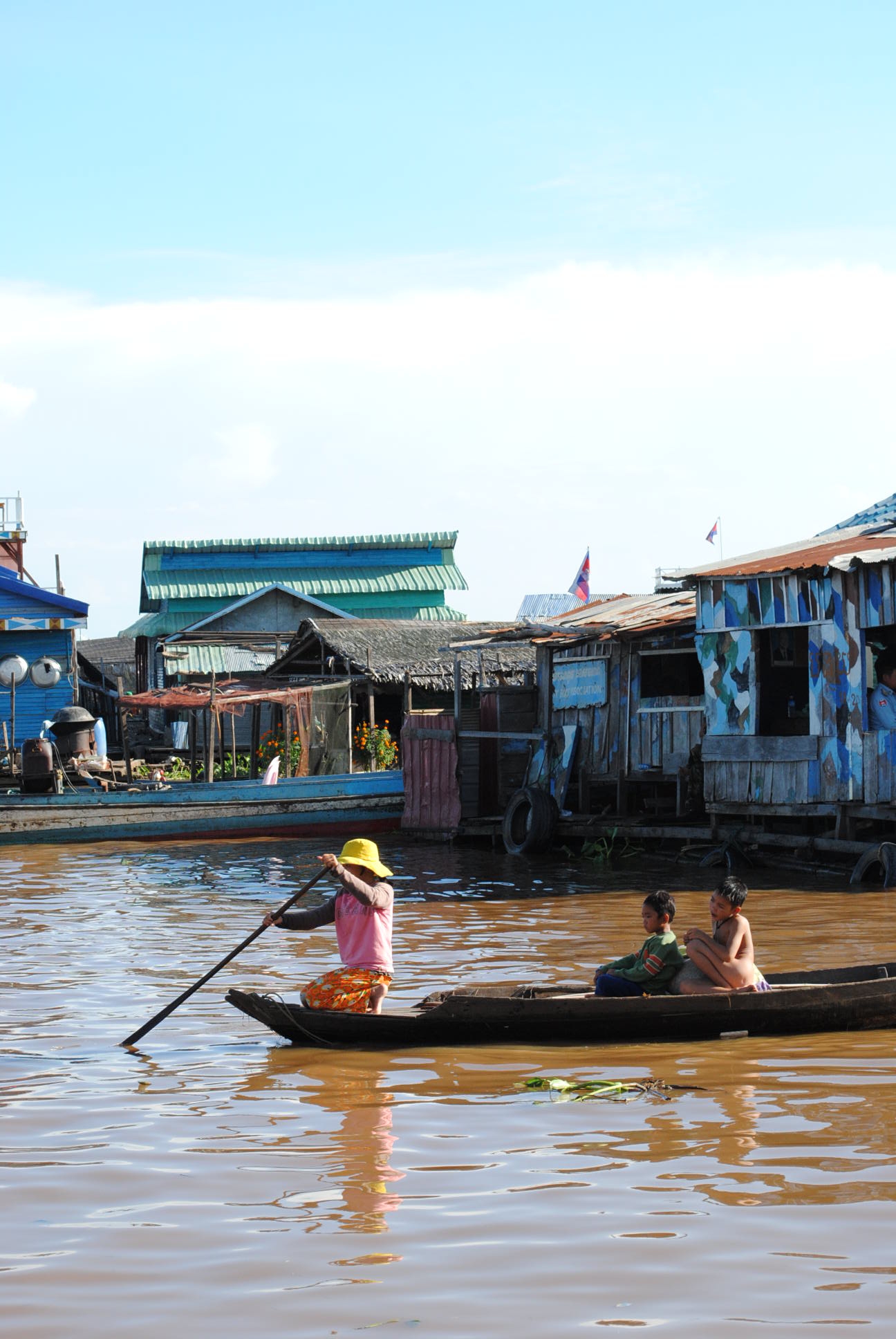
As a CBT reporter, I attended the short program for training overseas, which is implemented by CBNU, for 5 nights and 6 days. The training program was held in Indonesia, Thailand, and Cambodia. In those countries, I suffered from severe heat waves, barely palatable foods, and terrible water quality, but I was very excited as it was my first trip ever overseas.
Indonesia is extremely hot and humid because it lies on the equator. A tour guide said, "This climate makes Indonesian people slow-moving, and they can't multi-task." In general, rich families hire three to four housekeepers, each of whom is in charge of doing the laundry, cleaning up the house, preparing meals, or looking after babies in Indonesia. The guide added, "If a maid does more than one chore, the maid can't do anything right."
I flew on a plane for seven long hours to the capital of Indonesia, Jakarta, so the long flight could easily have been tedious. Fortunately, I had a wonderful time with a nice Indonesian person who sat right next to me. His name is Windy Lay and he works for the government in Jakarta. He was returning to Jakarta just after finishing a training session in Seoul. He felt deep regret about not having enough time to go sightseeing in Korea. He said, "Jakarta is not a popular city to visit, but companies all over the world are coming due to abundant resources and cheap labor. During the daytime, Jakarta's traffic congestion is as terrible as Seoul's, so you had better travel around at night."
The next day, I visited the Korean ceramic company 'ZEN HanKook' located in Tangerang. The city looked like a Korean city of the 60's and 70's. I felt the sizzling heat of baking pottery from the entrance of the factory. The employees dressed in sky blue, on the other hand, didn't seem to care about the heat because they were pouring themselves into their work. A manager, who graduated from CBNU, was managing hundreds of local employees. He explained the manufacturing processes of ceramics in detail while walking around the factory. Attaching decals to pottery by hand was especially amazing. After the process, the plain pots were transformed to beautiful works of art. Decals are usually attached to ceramics after glazing. ZEN HanKook, however, attaches decals before glazing and it is the leading-edge technology of the company. Recently, many youths have been engaging in a heated competition with finding a job inside of Korea, which is a comparatively small country. The manager, however, jumped into the workforce in a foreign country at such a time. Furthermore, he has contributed to the globalization of Korean ceramics, I was so impressed with his passion that I want to emulate.
After the trip in Indonesia, I was guided in the capital city of Thailand, Bangkok. I was really glad just because the guide was Korean. I reached Bangkok when the government banned entertainment establishments from selling alcohol due to the general election on the next day. The guide said, "Authorities fear that people won't participate in the election after drinking." On that day, the downtown streets, which are usually crowded with customers, were silent.
Pattaya, called 'Queen of Asian Resorts', is located southeast of Bangkok. It attracts lots of visitors with its superb natural landscape, colorful fruits, and variety of shopping malls. I could enjoy various sorts of water sports, such as parasailing and riding a banana boat and a speed boat on the emerald colored sea of coral islands in Pattaya. When I went parasailing, the mischievous boat driver dropped me into the sea. Although I accidently drank some ocean water, it was an exciting experience.
Cambodia, the last country of the training program, seemed poorer than the other countries. I could easily see many kids who went around begging by saying, "Please, give me one dollar." I was told not to give money to them from the Korean guide. He added, "Give school supplies or old clothes rather than giving money. If they receive money, they won't try to work."
Angkor is a historical site of Siemreap and it is well known for Angkor Wat and Ta phrom. Angkor Wat is the largest stone building in the world and one of the Seven Wonders of the World because of its huge scale and elaborated stone carvings. Ta phrom was the shooting location of the famous movie 'Tomb Raider' starring Angelina Jolie. The long and thick roots of fig trees, named 'spung trees', were wrapped around the pillars and the roofs of the temple. It seemed to be at risk of collapsing at any moment by the weight of the trees, but the curious sight was beyond description.

I went to Tonle Sap Lake, which is the largest lake in the East, after looking around Ankor. There is the Floating Village on Tonle Sap Lake where Cambodian people and immigrants from Vietnam live. The lake is muddy and extensive enough to be called 'a sea'. Even a lighthouse was erected in the middle of the lake because lots of ships had lost their way on the vast lake. Though the lake looked dirty, local people were using the water to do laundry, to wash, and to cook. Those scenes traumatized me.

I was overly nervous in those developing countries where sanitation or security conditions are poor. Meanwhile, I felt sorry for the countries to see their current bad situations after visiting their awesome historic sites because they also had brilliant periods in their histories. Through the training program, I was emboldened enough to leave on a trip overseas on my own. Furthermore, I could discover that developing countries were not as dangerous as I expected. If I have a chance to travel abroad again, I will enjoy foreign cultures by interacting closely with the local people.
By Kong Hae-gyoung hg31@cbnu.ac.kr


 All
All Experience
Experience






 공해경
공해경











